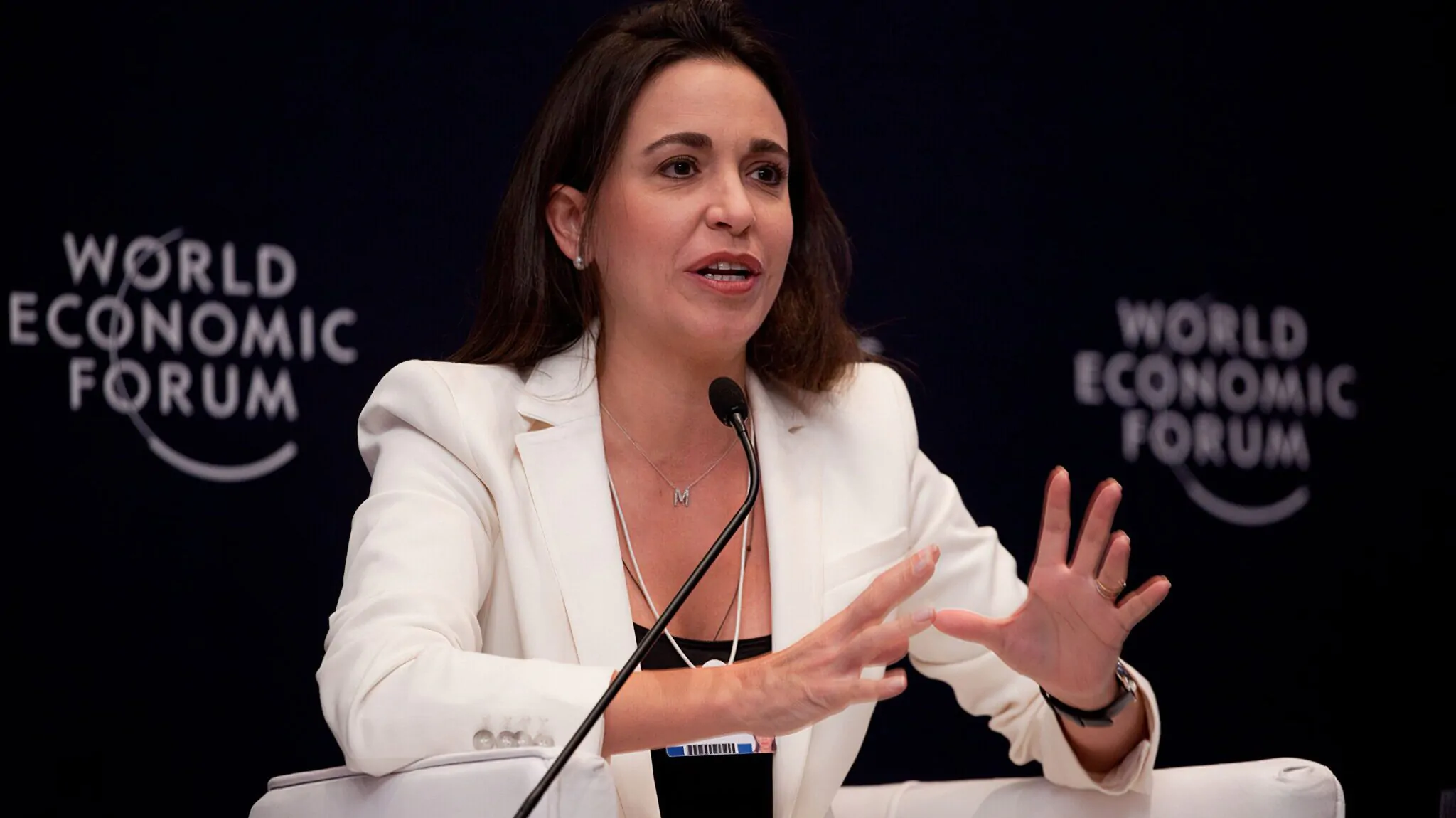With the stroke of a pen in Oslo, the Nobel Committee did something extraordinary: it reminded the world that peace without freedom is merely submission.
By awarding the 2025 Nobel Peace Prize to María Corina Machado, the Committee didn’t just honor one woman’s courage—it reignited a universal truth. Real peace is not quiet. It’s not the stillness imposed by fear or the false harmony of obedience. Real peace is the steady voice that refuses to yield when tyranny demands silence.
That truth should echo loudly here in America, where democracy itself is being tested by those who wield power while claiming to defend it.
The current administration in Washington, D.C. now governs not as a guardian of the Constitution, but as one obsessed with its conquest. It has used the Justice Department to punish critics, rewarded loyalty over law and praised strongmen who crush dissent. It mocks the press, undermines the courts and bends institutions to serve political ambition. These are not the instincts of leaders devoted to liberty—they are the habits of those who covet control.
And in Alabama, our Republican supermajority has eagerly followed that example. They moralize about “freedom” while systematically dismantling it. They criminalize compassion, restrict healthcare and target transgender youth and their families. They seek to control women’s bodies, censor classrooms and intimidate librarians for the books they lend. Each act is wrapped in the rhetoric of “Christian values,” but the Christ they invoke bore no resemblance to the politics they practice. He healed the sick and lifted the broken. He did not persecute the different or legislate mercy out of existence. What they defend is not Christianity—it is control cloaked in scripture.
Meanwhile, Alabama’s Attorney General continues to lead the charge against democracy. His office fought to preserve racially gerrymandered maps that dilute Black representation, defied Supreme Court rulings and resisted federal mandates until judges forced compliance. Yet still calls himself a defender of “law and order.”
Law and order for whom?
Those who undermine democracy while claiming to protect it are no different in spirit from the authoritarians María Corina Machado has spent her life opposing. The methods differ, but the motive is the same—to keep power in the hands of the few and silence those who dare to challenge it.
That’s what makes Machado’s recognition so vital. She has stood in the breach where others might have fled. Barred from office, accused of crimes against the state and forced into hiding, she has remained the moral conscience of a nation betrayed by its rulers. The Nobel Committee praised her “tireless work promoting democratic rights for the people of Venezuela and for her struggle to achieve a just and peaceful transition from dictatorship to democracy.”
That phrase—“peaceful transition from dictatorship to democracy”—should chill and inspire us at once. It reminds us that peace is not the absence of conflict but the presence of justice.
We in America like to believe we are far removed from such struggles. We comfort ourselves with the illusion that democracy is permanent. But democracy is not a birthright—it is a responsibility. It lives only as long as people defend it, and it dies when people trade it for comfort, resentment or revenge.
The current administration and its loyalists understand that truth well. By eroding trust in elections, attacking the free press and rewriting history, they weaken the foundation of our republic without ever admitting their intent. That is how tyranny advances—not with tanks in the streets, but through the corrosion of conscience.
And Alabama, for all its pride and promise, remains a battleground for the soul of democracy itself. This is the state where men and women once faced billy clubs and tear gas in Selma so that every citizen could have an equal voice. Their courage changed a nation. Yet today, some of the same forces that stood against progress then now masquerade as its protectors. They pass voter suppression laws and call them “reforms.” They silence dissent and call it “patriotism.” They strip away freedom and call it “faith.”
The Nobel Committee’s decision to honor Machado was not sentimental—it was moral clarity. It declared that democracy itself is the highest form of peace, and that those who defend it, even at great personal cost, are the true peacemakers.
Machado has risked imprisonment, exile and death for the conviction that her people deserve to choose their destiny. Her courage should shame the cowards who weaponize religion, manipulate faith to justify cruelty, and confuse political ambition with moral righteousness.
If we in Alabama—and across this nation—have any hope of remaining free, we must find that same resolve: to stand up when it is unpopular, to speak out when silence feels safer, and to defend the rights of others with the same passion we defend our own.
And perhaps this moment might even rewrite a bit of history.
Not long ago, Alabama’s U.S. Senator Katie Britt, along with many of her Republican colleagues, called for President Donald J. Trump to be nominated for the very same prize now awarded to Machado.
What a moment it would be for Senator Britt to meet her—to sit across from a woman who has risked her life for the democracy Britt so often praises. Imagine the conversation: two powerful women, both commanding the world’s attention—one who stood against tyranny to defend her people’s freedom, and another who could yet choose to help restore her nation’s faith in it.
If Britt truly is the future of her party, then the measure of that future will not be found in applause lines or partisan victories, but in whether she uses her influence to build up rather than tear down—to lead with courage, compassion and the conviction that peace begins with justice at home.
Peace is not born from submission. It is born from justice. And justice cannot exist where fear governs, where truth bends to the will of the powerful, and where the few decide who counts as “equal” under the law.
María Corina Machado did not win the Nobel Peace Prize because she made peace easy. She won it because she made it costly—and paid that price with courage.
Her story is not just Venezuela’s—it is ours. It’s a reminder that freedom anywhere is bound to freedom everywhere, and that silence in the face of oppression is complicity in its cause.
So let us honor her not with applause, but with action. Let us rebuild faith in democracy, defend the right to vote, and reject those who claim to love freedom while working to destroy it.
Because peace without liberty is not peace at all—it is surrender.
And surrender, in the end, is the one thing a free people must never do.


















































